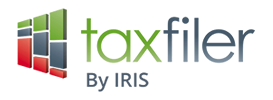Supplies were VATable, but assessment was out of time
HMRC is notoriously strict on taxpayer deadlines, e.g. when making claims for tax relief. However, it must also follow the rules. In a recent tribunal case, HMRC was told it was too late to collect underpaid VAT of nearly £250,000. What went wrong?

The taxpayer (GG) is a registered nurse, qualified as a prescriber, and sold treatments for skin disorders, mainly ultraviolet. She had exceeded the compulsory registration threshold, but did not register as she believed the treatments were exempt as “medical care”. HMRC disagreed and said they should be standard-rated as the treatments were largely cosmetic. The tribunal agreed with HMRC on balance, and said that the supplies from November 2007 to February 2018 should have been subject to VAT at the standard rate. HMRC had raised an assessment for £212,897.
The problem for HMRC was that it had issued the assessment in March 2021, and the timeframe under s.73 VAT Act 1994 only allows twelve months from the end of the relevant period in these circumstances, namely after sufficient evidence of facts to determine the VAT due are obtained by the officer. HMRC had argued that the submission of a VAT return by GG meant new information, and therefore a later deadline, but the tribunal dismissed this as it was a nil return. The case is a reminder to always check assessments for any tax have been correctly issued within the relevant time limits.
Related Topics
-
HMRC updates guidance for claiming new allowance
Qualifying expenditure on plant and machinery can qualify for a 40% first-year allowance from 1 January 2026. HMRC has now updated its guidance to help make claims. What do you need to do?
-
Get ready for Making Tax Digital for Income Tax
If you’re one of the (un)lucky individuals who need to join Making Tax Digital for Income Tax (MTD IT) from 6 April 2026, you probably know that this involves submitting regular, digital records to HMRC. But what do you need to do to prepare?
-
CT61









 This website uses both its own and third-party cookies to analyze our services and navigation on our website in order to improve its contents (analytical purposes: measure visits and sources of web traffic). The legal basis is the consent of the user, except in the case of basic cookies, which are essential to navigate this website.
This website uses both its own and third-party cookies to analyze our services and navigation on our website in order to improve its contents (analytical purposes: measure visits and sources of web traffic). The legal basis is the consent of the user, except in the case of basic cookies, which are essential to navigate this website.